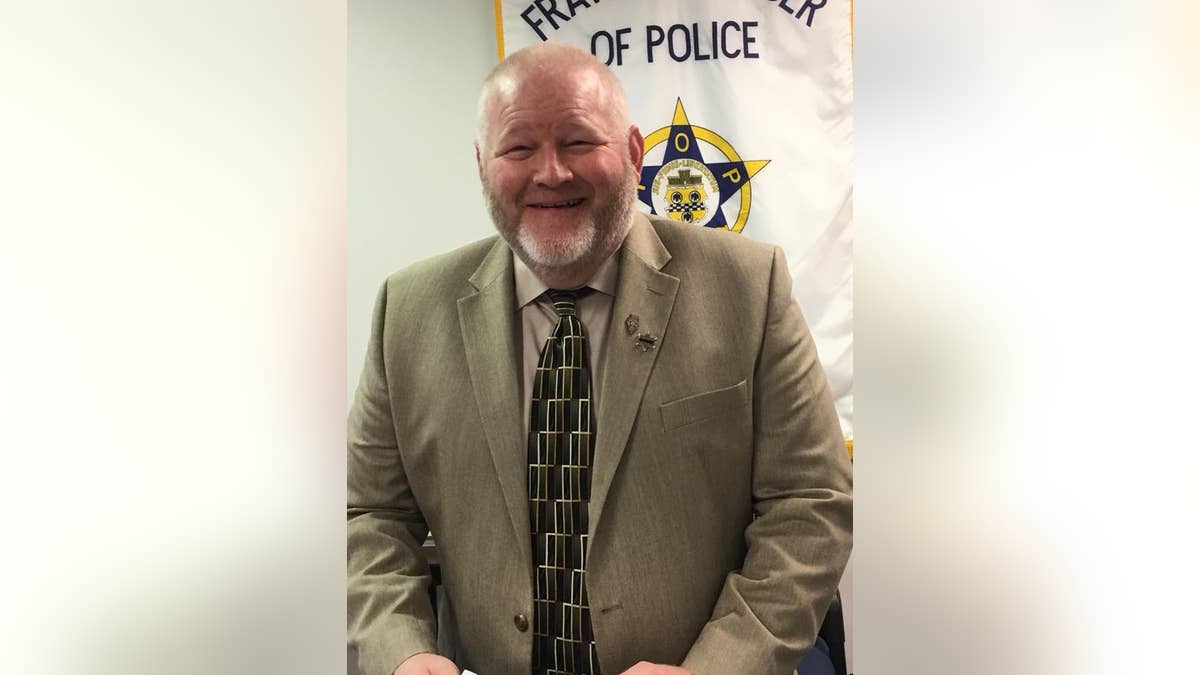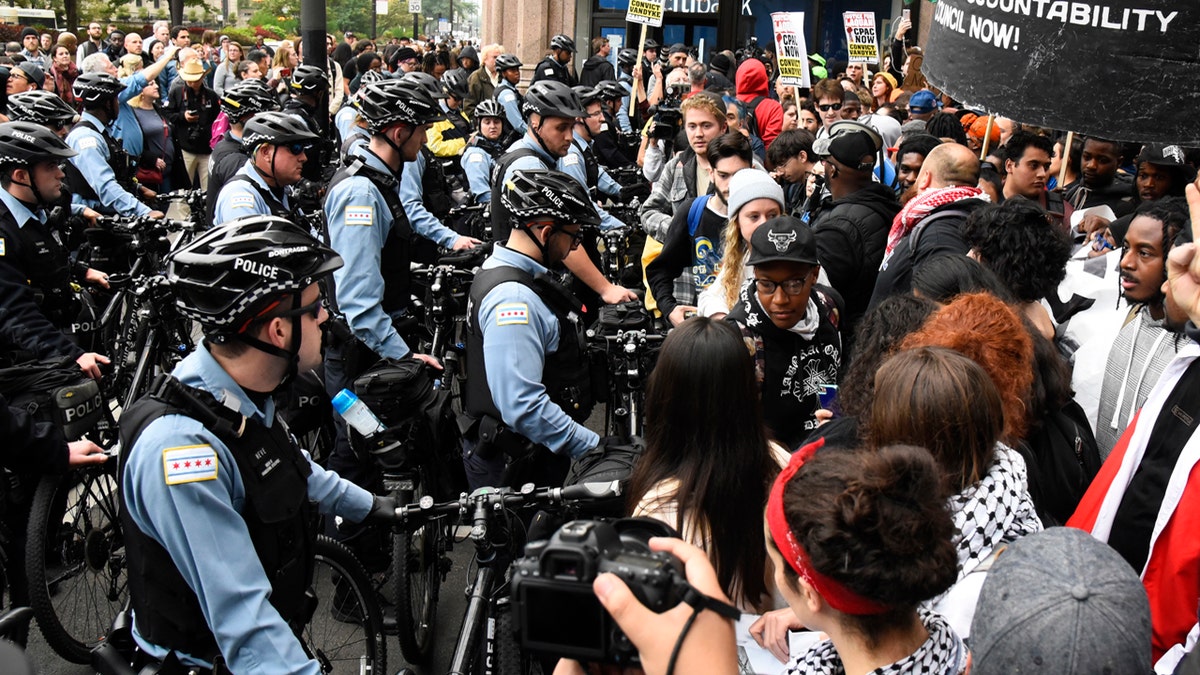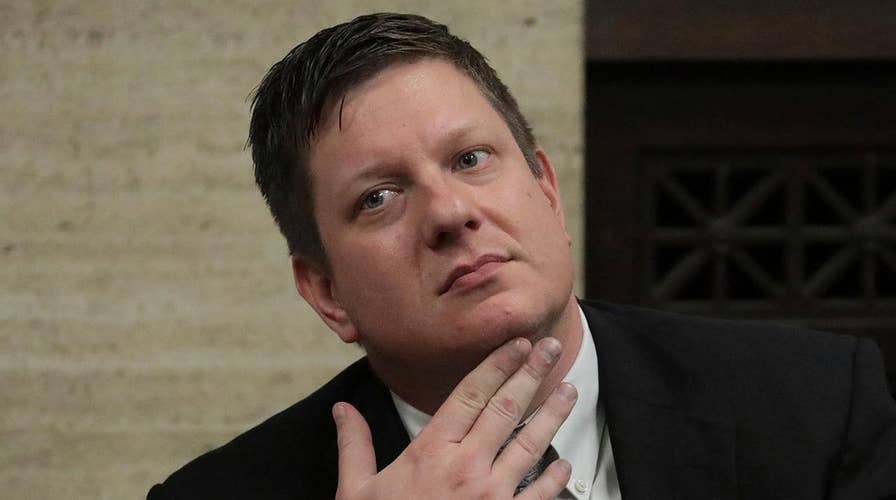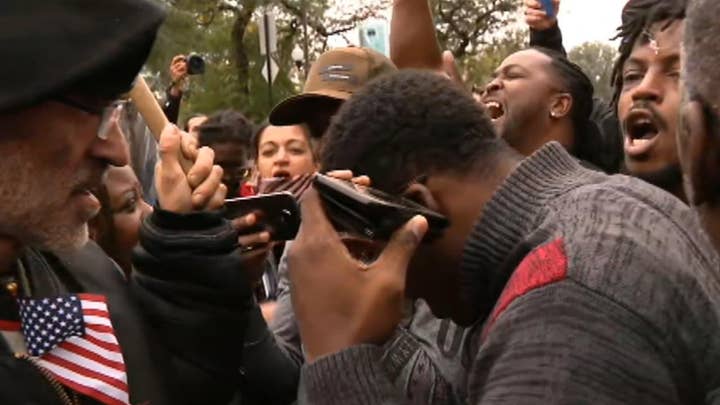Jury finds Jason Van Dyke guilty of second degree murder
Raw video: Chicago police officer found guilty of second-degree murder and 16 counts of aggravated battery for the fatal shooting of black teenager Laquan McDonald.
The Illinois Fraternal Order of Police on Friday blasted the guilty verdict of Chicago police Officer Jason Van Dyke in the 2014 fatal shooting of teenager Laquan McDonald, reports said.
The FOP, based in Springfield, decried the ruling in a statement Friday, according to the Chicago Sun-Times. Van Dyke, 40, was convicted Friday of second-degree murder and aggravated battery. He was acquitted of official misconduct.
“This is a day I never thought I’d see in America, where 12 ordinary citizens were duped into saving the asses of self-serving politicians at the expense of a dedicated public servant,” Chris Southwood, the state organization's president, said in a statement.
“This sham trial and shameful verdict is a message to every law enforcement officer in America that it’s not the perpetrator in front of you that you need to worry about, it’s the political operatives stabbing you in the back," the FOP said. "What cop would still want to be proactive fighting crime after this disgusting charade, and are law abiding citizens ready to pay the price?”
“This sham trial and shameful verdict is a message to every law enforcement officer in America that it’s not the perpetrator in front of you that you need to worry about, it’s the political operatives stabbing you in the back."
Kevin Graham, the head of the Chicago FOP, was more cautious in his response, the Sun-Times reported.
“They have used this case to really kick around the Chicago Police Department, which has been unfortunate,” he said.
Van Dyke testified that McDonald was advancing on him and ignoring his orders to drop a knife. Video showed the 17-year-old crumpling to the ground in a hail of 16 bullets as he walked away from officers.
The police footage put the nation's third-largest city at the center of the debate about police misconduct and use of force.
Van Dyke was the first Chicago officer to be charged with murder in an on-duty shooting in about 50 years.
The second-degree verdict reflected the jury's finding that Van Dyke believed his life was in danger but that the belief was unreasonable.
“Those lawyers had months to think about the case. Those jurors had weeks. That officer had half a second,” resident Julie Grossman told the Sun-Times. “It seems like people these days don’t want the police to be able to do their jobs.”
“Those lawyers had months to think about the case. Those jurors had weeks. That officer had half a second. It seems like people these days don’t want the police to be able to do their jobs.”
After the verdict was announced, Chicago Mayor Rahm Emanuel and police Superintendent Eddie Johnson urged residents to listen to each other as they react to the conviction.
"The effort to drive lasting reform and rebuild bonds of trust between residents and police must carry on with vigor," they said in a joint statement.

Chris Southwood is president of the Illinois Fraternal Order of Police.
Meanwhile, hundreds of boisterous but peaceful demonstrators briefly blocked several streets in downtown Chicago on Friday.
Carrying signs reading "Justice for Laquan McDonald" while chanting "16 shots" and "guilty," the marchers started outside City Hall and continued for many blocks. The tone was celebratory as demonstrators pushed past police officers lining the route.

Protesters stand near police in the downtown area after a jury convicted white Chicago police officer Jason Van Dyke of second-degree murder in the 2014 shooting of black teenager Laquan McDonald Friday, Oct. 5, 2018, in Chicago. (Associated Press)
One legal expert said the white Chicago police officer was likely looking at less than 10 years in prison for killing a black teenager rather than decades because jurors opted to convict him of second-degree murder and not first-degree murder.
Steve Greenberg has defended clients at more than 100 murder trials. He said Van Dyke would have faced a mandatory minimum sentence of 45 years on a first-degree murder conviction.
Second-degree murder usually carries a sentence of less than 20 years, especially for someone with no criminal history. Probation is also an option.
Greenberg estimated a judge would impose a prison sentence of no more than six years.
The Associated Press contributed to this report.



